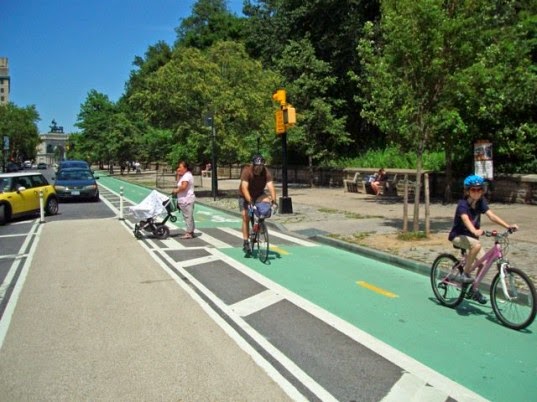Study: protected bike lanes really do increase biking

Safety is usually the biggest reason why more people don't bike. True, biking isn't all that dangerous compared to being a pedestrian, but it seems much more dangerous — especially to people who haven't ridden in traffic or been on a bike much since childhood. Research shows the lanes make new bikers feel safer about biking Luckily, we have a cutting-edge technology that can solve this problem: protected bike lanes. Though some European cities began installing these bike lanes — which are physically separated from the street by a curb or barrier — during the 1970s and 80s , relatively few of them existed in the US until recently. Over the past few years, though, American cities have begun building them in record numbers. And if the goal of these lanes is to get more people biking, research shows they work. A new study of eight recently-installed protected bike lanes in Austin, Chicago, Portland, San Francisco, and Washington, DC shows they encouraged substant...






